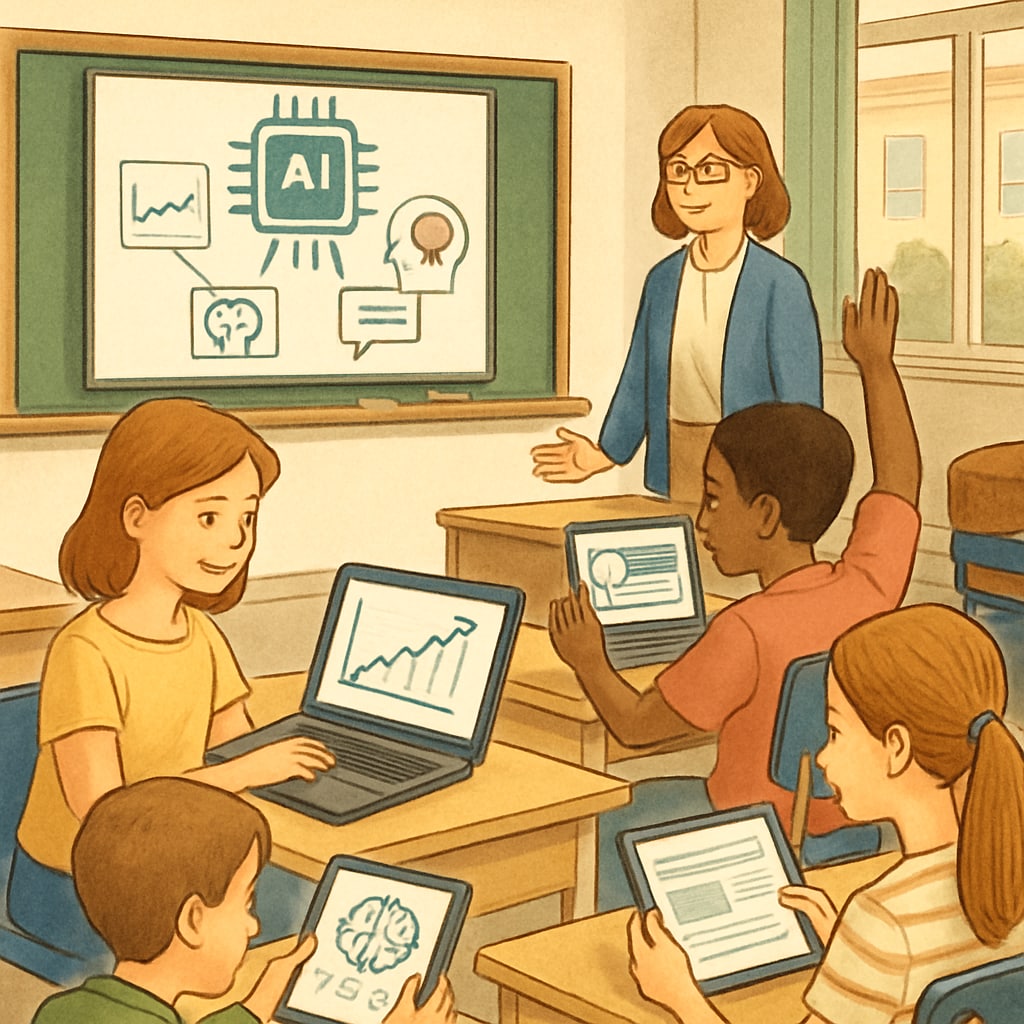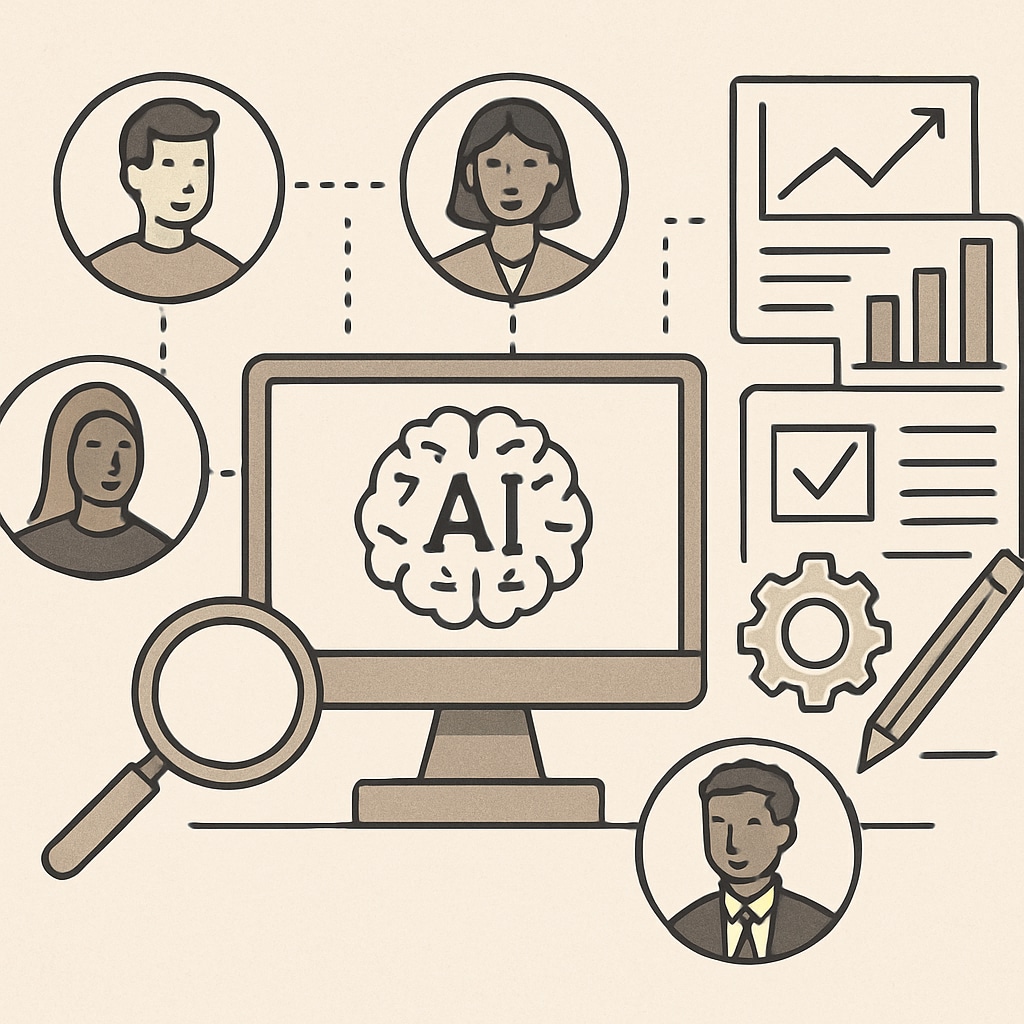In the age of artificial intelligence, competitive exams and traditional employee selection processes are facing unprecedented challenges. As AI redefines industries and skill demands, the current K12 competitive examination systems are increasingly misaligned with the needs of the future workforce. This article delves into the necessity of reforming these evaluation systems, urging educators and policymakers to rethink how talent is identified and nurtured in a technology-driven world.
The Limitations of Traditional Competitive Exams in an AI Era
For decades, competitive exams have been the cornerstone of educational systems worldwide. They are designed to evaluate rote memorization, theoretical knowledge, and standardized problem-solving abilities. However, this model is insufficient in the AI era, where creativity, adaptability, and critical thinking are paramount. AI systems can now outperform humans in tasks traditionally emphasized in exams, such as data analysis and pattern recognition.
For example, AI-driven tools like ChatGPT and other large language models can generate well-structured essays, solve complex equations, and even simulate human-like problem-solving skills. As a result, traditional exams risk becoming irrelevant, as they fail to measure the uniquely human traits that AI cannot replicate—such as emotional intelligence, ethical reasoning, and creative problem-solving.

Reimagining Talent Development and Evaluation
To address these challenges, education systems must shift their focus from memorization to fostering skills that cannot be easily automated. This includes interpersonal communication, collaboration, and the ability to adapt to unforeseen challenges. Reforming competitive exams involves the following key changes:
- Incorporating AI Literacy: Students should be taught how to effectively use AI tools, understanding their strengths and limitations. This will prepare them for workplaces where AI is ubiquitous.
- Focusing on Project-Based Learning: Instead of standardized tests, students can be evaluated through real-world projects that demonstrate their ability to apply knowledge creatively.
- Developing Soft Skills: Exams should include components that assess teamwork, leadership, and ethical decision-making.
- Personalized Assessments: With AI, adaptive testing methods can be developed, offering a tailored evaluation experience that measures individual strengths and weaknesses.
By adopting these reforms, educational institutions can better prepare students for a future where machines and humans work collaboratively rather than competitively.
Preparing for Workforce Integration
The transformation of competitive exams is not just an educational challenge; it is also a workforce necessity. Companies are increasingly prioritizing skills like innovation, emotional intelligence, and ethical judgment—qualities that cannot be easily measured by traditional exams. Recruitment methods must evolve to identify candidates who can thrive in hybrid human-AI work environments.
For example, organizations like Google and Tesla have shifted away from prioritizing academic credentials, instead emphasizing problem-solving abilities and practical experience. Similarly, competitive exams must evolve to reflect this change, ensuring that students are equipped to meet the demands of modern industries.

The Role of Policymakers and Educators
Reforming competitive exams requires collaboration among educators, policymakers, and industry leaders. Policymakers must establish frameworks that encourage innovation in assessment methods, while educators need to embrace new pedagogies that prioritize skill development over rote learning. Additionally, partnerships with industry leaders can provide valuable insights into the evolving skill demands of the workforce.
For instance, Finland has implemented a curriculum that emphasizes interdisciplinary learning and creativity, moving away from traditional exam-focused approaches. This model could serve as inspiration for other countries seeking to modernize their education systems.
Conclusion: Embracing Change for a Better Future
As artificial intelligence continues to shape the future of work and education, the need for reform in competitive exams becomes increasingly urgent. By shifting the focus from memorization to creativity, adaptability, and ethical reasoning, we can ensure that students are prepared to thrive in an AI-driven world. This transformation demands the collective efforts of educators, policymakers, and industry leaders to create an education system that truly nurtures human potential.
Ultimately, the goal is not to compete with AI but to complement it, leveraging our uniquely human capabilities to build a more innovative and equitable future.
Readability guidance: Short paragraphs and lists are used to enhance readability. Overuse of technical jargon is avoided, and practical examples are provided to illustrate key points. Transition words like “however,” “therefore,” and “for example” ensure smooth flow throughout the article.


